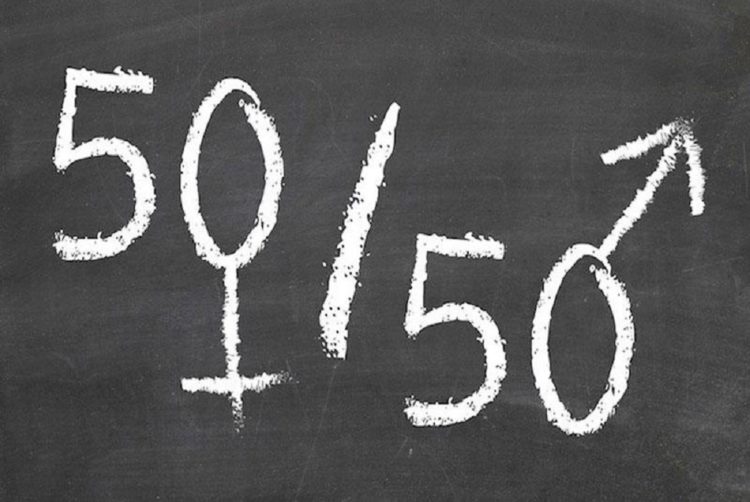The effects of climate and energy crisis on gender equality were discussed on Wednesday during a conference in Nicosia co-organized by the offices of the Commissioners for Environment and Gender Equality, with the participation of a senior UN official, officials from Ministries and Deputy Ministries, organized groups, the Police and other bodies and institutions.
Senior Gender Affairs Specialist, at the United Nations Economic and Social Commission for Western Asia Salma Al Nims said that in order to truly tackle the climate crisis, we must amplify the wisdom of grassroots champions and fuel their solutions with robust international cooperation and financing. “Only by listening to those on the frontlines can we forge a sustainable future for all”, she noted, addressing the Conference.
She noted that climate change and crises are not gender-neutral, adding that today the entire world is witnessing how conflict is translating into a humanitarian crisis as people in Gaza are deprived from food, water and energy while sustaining continuous bombardment.
“UNFPA estimates that there are 50,000 pregnant women in Gaza – of whom 5,522 are expected to deliver in the next month; these women are cut off from safe delivery services as hospitals come under attack and the health system unravels, with life-saving medicines, fuel and electricity running out. But the impact of conflict, climate change and the energy crisis on gender equality is not just a matter of physical survival. It also has profound social and economic implications”, Al Nims said.
The UN official noted that the war in Ukraine has had devastating impact on women and girls worldwide, widening gender gaps and increasing rates of food insecurity, malnutrition and energy poverty. Al Nims further said that our response to climate change and the energy crisis must be inclusive, ensuring that policies and interventions are gender-responsive and take into account the unique needs and strengths of women.
“We must invest in women’s education, healthcare, and economic empowerment as part of our climate action. We must ensure women’s participation in decision-making at all levels – from local communities to international forums”, she said.
Addressing the participants Commissioner for Gender Equality, Josie Christodoulou, noted that for the first time, at least in a public debate, this specific issue is being discussed and added that it is necessary that every policy and measure should address both men and women.
She referred to the new National Strategy for gender equality 2024-26, which includes a study on the integration of the gender dimension in energy policies and the creation of financial and digital education programs for rural women.
The Commissioner also said that Cyprus, together with other countries, has signed the Gender Responsive Just Transitions and Climate Action Partnership Pledge with the aim of promoting women in decision-making centers, since in this way actions and policies can be gendered.
Maria Panagiotou, Commissioner for the Environment, said that gender equality and the protection of the environment must be applied horizontally, in every aspect of our daily life.
She said that the impact of the climate and energy crisis on gender equality has already been measurably recorded and that the effects manifest themselves in various ways from increased health risk due to climate-related diseases to increased economic vulnerability, particularly in poor or rural areas.
She added that women in many societies have limited access to resources and opportunities, which can have a negative impact on their ability to participate in decisions that affect the environment. Additionally, she noted that inequality in the distribution of both resources and benefits from sustainable development is often problematic.
The Commissioner said that women must have equal representation in the decision-making centers where policies and strategies are drawn up, so that their views, experiences and knowledge shape the strategies we adopt. In addition, investing in education and training programs for women in green and blue professions is crucial, as in this way we not only empower women but at the same time strengthen our workforce, in sectors vital to sustainable development.
On behalf of the Minister of Agriculture, the director of his office Eftychia Ioannou said that women and girls are usually more vulnerable to the consequences of the climate crisis and face additional challenges as due to the need to migrate or move due to the crisis, they also become more vulnerable to abuse.
She added that because women are usually the providers of food and care for their children, especially in developing and poor countries, they spend more time on water supply, cultivating fields and taking care of the family and so when these resources are minimized, the burden on them intensifies. She referred to UN figures according to which 80% of those displaced by the climate crisis are women and children.
Ioannou also referred to the inequality in education and employment for women due to the consequences of the climate crisis. But she also said that because women usually stay at home to take care of their children and family, they use less public transport and therefore help reduce carbon emissions, unlike men.
Dr. Xenia Loizidou, president of the Board of the Akti Center for Research and Studies, noted that when implementing policies, we must have in mind the needs of those we want to assist.
In her speech, she noted that the issue of gender equality and the climate crisis has only recently been added to the political agenda, stating that we often do not talk about such issues because we may think that they do not affect us and do not concern us. According to Loizidou, we often think that climate and gender are issues that concern only Africa or Asia, however the reality is different.
She referred to the need to equally strengthen society, economy and the environment. She also referred to the effects of climate crisis in Cyprus which now experiences long dry periods from April to November which lead to desertification, frequency of storms and heavy rainfall and dust.
According to Loizidou, no study has been done on the rise of the sea level in Cyprus nor any research on the dust from the war zones. She said that due to desertification, our lands are losing their ability to produce, that 60% of the lands of Cyprus are in desertification conditions and at the international level this percentage is 11.6%.
In her speech she also recalled that in 1990 38% of our vines were uprooted with social and economic impact. She referred to the recent wild fires in the villages of Arakapas and Dierona as a result of which many families lost their income and had to move to either Nicosia or Limassol.
Akti President also emphasized the need for engineers and scientists to get involved in finding solutions and the need to promote innovation as well. Loizidou also said that diversity should also apply to human systems.



